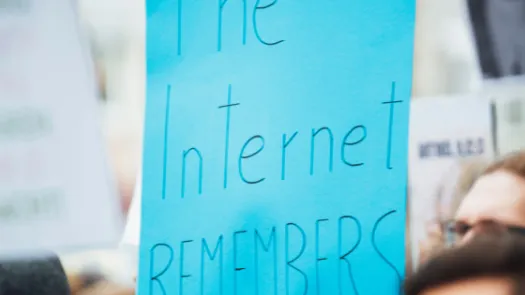Review of 'The Great Hack' documentary

Image: The Great Hack publicity still, courtesy of Netflix.
This is a review of the documentary 'The Great Hack' originally published on IMDb.
This documentary is a fascinating account of The Facebook/Cambridge Analytica data scandal.
In early 2018, Cambridge Analytica became a household name. The company had exploited the personal data of millions of Facebook users, without their knowledge or consent, and used it for political propaganda.
At a running time of almost two hours, The Great Hack is overlong, but it remains a largely engrossing watch.
The story of the notorious and now defunct Cambridge Analytica is told through the eyes of those who uncovered the scandal, and some of its former employees. One of the film's best features is the way in which it renders invisible data exploitation visible, by giving shape and colour to the 2.5 quintillion data points we produce every day. Understanding how this data is collected, shared and (mis)used is difficult for most of us to comprehend, but the Great Hack does a good job of visualising it.
The Great Hack spends a lot of time - perhaps too much time - with Brittany Kaiser, the former business development director for Cambridge Analytica. She spoke out days after the Guardian reported her alleged involvement in a smear campaign in the Nigerian 2015 election, but this context of Kaiser's decision to go public, and other key details about her complicated story are not covered. She is actually a far more ambiguous character than she appears to be in the documentary.
Through Kaiser, and previously unreleased files and recordings, The Great Hack gets into details of how Cambridge Analytica operated. In one of the film's most convincing scenes, we learn how SCL Elections, Cambridge Analytica's parent company, engineered a grassroots youth movement in Trinidad and Tobago to "increase apathy" so that young Afro-Caribbeans would not vote. This highlights a theme that often got lost in the midst of a scandal that focussed primarily on the company's involvement in the 2016 US presidential election and the Brexit referendum - which is that countries with fewer laws and protections often serve as testing grounds for the worst practices by companies.
In one scene Kaiser discusses a PowerPoint slide that shows all the different data sources the company has used. Next to Facebook, we see the logo of data broker Acxiom. It is in moments like these, that the Great Hack hints at, but fails to explain exactly how the story of a single company links to a broader narrative about a systemic and looming threat - and the importance of enforceable data rights in addressing this challenge.



